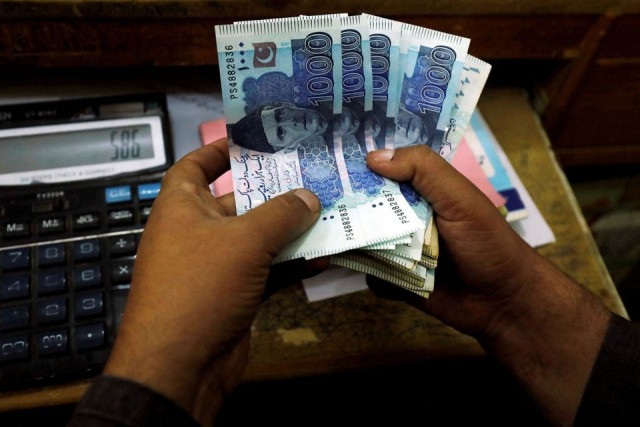Record Rs1.36tr allocated to subsidies for FY25
Major allocation to power sector amid efforts to relieve consumers, support key initiatives

The government has increased the allocation for subsidies to Rs1.36 trillion for the upcoming financial year 2024-25, with a major portion going to the power sector. The government had allocated Rs1.07 trillion in the federal budget for fiscal year 2023-24, of which Rs584 billion went to the power sector. Initially, Rs894 billion was allocated for the power sector, but this was later revised downward to Rs584 billion.
For the outgoing fiscal year 2023-24, the government initially earmarked Rs1.064 trillion for subsidies, but the actual subsidies swelled to Rs1.07 trillion according to revised estimates. With the subsidy allocation for FY25, the government expects to provide some relief for consumers of electricity and petroleum, wheat operations, urea, the Ramazan package, the Mera Pakistan Mera Ghar scheme, and interest-free loans to landless farmers. However, it remains uncertain whether the government will be able to stay within the subsidy ceiling or exceed the target, as happened in the outgoing year.
According to the Budget Book released on Wednesday, the subsidy bill has been estimated at Rs1.36 trillion for the next fiscal year, an increase compared to the allocation for the current financial year. For the next fiscal year, the government has earmarked Rs276 billion, up from Rs150 billion, for payments for Inter-Disco tariff differential. Rs65 billion has been set aside for the merged districts of Khyber-Pakhtunkhwa (K-P) (Federally Administered Tribal Areas (FATA) subsidy), with an additional Rs86 billion allocated for FATA subsidy arrears. An amount of Rs108 billion has been set aside for the tariff differential for Azad Jammu and Kashmir (AJK) in FY25, up from Rs25 billion in the current year.
The government had also earmarked Rs48 billion for the Pakistan Energy Revolving Fund (PERA). For the ongoing financial year, Rs7 billion was allocated for the KESC (now known as K-Electric (KE)) subsidy industrial support package, but this package has been shelved for the upcoming financial year. The government also allocated Rs500 million for agriculture tubewells in Balochistan for KE consumers.
Of the total, Rs174 billion has been set aside to cover KE’s tariff differential, against the original allocation of Rs171 billion in the outgoing year. The actual subsidy came in at Rs228 billion. The government had allocated Rs215 billion for GPPS-Equity (government-owned power plants- equity) for the ongoing fiscal year. An additional subsidy of Rs120 billion has also been allocated, but it is unclear which head it will go to.
Apart from the power sector, the government has allocated a subsidy of Rs18.4 billion for the next financial year, down from Rs50 billion for petroleum consumers. An amount of Rs2.4 billion has been allocated to meet the shortfall in guaranteed throughput of Pakistan Electric Power Company (PEPCO), down from Rs5 billion during the ongoing financial year. An amount of Rs6 billion has also been allocated for the payment of the shortfall to Asia Petroleum, down from Rs7.6 billion during the ongoing financial year.
The government has allocated Rs10 billion for domestic consumers through Sui Northern Gas Pipelines Limited (SNGPL) Re-Gasified Liquefied Natural Gas (RLNG), down from Rs29 billion for the ongoing financial year. The subsidy cushion for the Pakistan Agricultural Storage and Services Corporation (PASSCO) has been increased to Rs12 billion, up from Rs10 billion for the ongoing financial year. Of this, Rs8 billion will go to PASSCO for wheat reserves stock and Rs4 billion will be given for the cost differential for the sale of wheat.
The government has allocated Rs68 billion in subsidies to industries and production. Of this, the Utility Stores Corporation (USC) will receive Rs65 billion, up from Rs35 billion for the ongoing financial year. An amount of Rs10 billion will go to the Ramazan package, Rs50 billion to the USC Prime Minister Package and arrears, and Rs5 billion for sugar subsidy arrears. An amount of Rs3 billion will be given for urea fertiliser. An amount of Rs15.8 billion will be given in wheat subsidy to Gilgit-Baltistan (G-B), while Rs10 billion will be given for the import of urea fertiliser.
An amount of Rs3 billion will be released as a Metro Bus subsidy. An amount of Rs21 billion has been allocated for the Mera Pakistan Mera Ghar Scheme as a mark-up subsidy on the housing finance scheme. The Naya Pakistan Housing Authority will get Rs1 billion.
The government has allocated Rs5 billion for a mark-up subsidy and risk-sharing scheme for farm mechanisation/Kisan packages. An amount of Rs3.2 billion has been allocated for the refinance and credit guarantee scheme (SME Assan Finance), Rs2 billion for enhancing financing to the Small & Medium sized Enterprises (SMEs) sector, and Rs13.8 billion for a mark-up subsidy to support the phasing out of the State Bank of Pakistan’s refinancing facilities.























COMMENTS (1)
Comments are moderated and generally will be posted if they are on-topic and not abusive.
For more information, please see our Comments FAQ